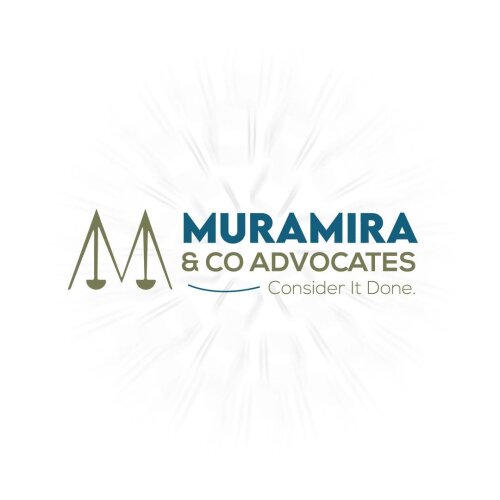Best Immigration Lawyers in Rwanda
Share your needs with us, get contacted by law firms.
Free. Takes 2 min.
Or refine your search by selecting a city:
List of the best lawyers in Rwanda
About Immigration Law in Rwanda:
Immigration law in Rwanda governs the entry, stay, and exit of foreign nationals in the country. The main goal of Rwanda's immigration policies is to control the movement of people across its borders and ensure national security.
Why You May Need a Lawyer:
You may need a lawyer for immigration issues in Rwanda if you are facing challenges with obtaining a visa, residency permit, or citizenship. A lawyer can also help you navigate complex immigration laws, ensure compliance with regulations, and represent you in legal proceedings.
Local Laws Overview:
Rwanda's immigration laws require foreign nationals to obtain the necessary permits for entry, stay, and work in the country. Key aspects of local laws include visa requirements, residency permits, and citizenship applications. It is essential to comply with these laws to avoid legal issues.
Frequently Asked Questions:
1. What types of visas are available in Rwanda?
In Rwanda, there are various types of visas, including tourist visas, business visas, student visas, and work visas. The type of visa you need will depend on the purpose of your visit to Rwanda.
2. How can I apply for a residency permit in Rwanda?
To apply for a residency permit in Rwanda, you need to submit an application to the Directorate General of Immigration and Emigration. The application process may vary depending on your situation and the type of permit you are applying for.
3. Can I apply for Rwandan citizenship?
Foreign nationals can apply for Rwandan citizenship through naturalization. The requirements for naturalization include living in Rwanda for a specified period, demonstrating proficiency in the Kinyarwanda language, and meeting other criteria set by the government.
4. What are the consequences of overstaying my visa in Rwanda?
Overstaying your visa in Rwanda can result in fines, deportation, and future immigration restrictions. It is essential to adhere to the terms of your visa to avoid these consequences.
5. Do I need a work permit to work in Rwanda?
Yes, foreign nationals need a work permit to legally work in Rwanda. The work permit application process involves obtaining a job offer from a Rwandan employer and meeting specific requirements set by the government.
6. How can a lawyer help me with my immigration issues?
A lawyer can provide legal advice, assistance with document preparation, representation in immigration proceedings, and guidance on navigating the complexities of Rwanda's immigration laws. A lawyer can also help protect your rights and interests throughout the immigration process.
7. What are the rights of foreign nationals in Rwanda?
Foreign nationals in Rwanda have rights protected by law, including the right to fair treatment, non-discrimination, and access to legal representation. It is essential to understand and exercise your rights while in Rwanda.
8. Can I appeal a decision on my immigration application?
Yes, you can appeal a decision on your immigration application in Rwanda. The appeal process involves submitting a request for reconsideration to the relevant immigration authorities and providing additional information or evidence to support your case.
9. How long does it take to process an immigration application in Rwanda?
The processing time for immigration applications in Rwanda can vary depending on the type of application, the volume of applications, and other factors. It is advisable to submit your application well in advance to allow for sufficient processing time.
10. Are there any restrictions on entering Rwanda with certain medical conditions?
Rwanda may impose restrictions on foreign nationals entering the country with certain medical conditions, particularly infectious diseases. It is essential to check the latest health requirements and guidelines before traveling to Rwanda.
Additional Resources:
For further information on immigration laws and procedures in Rwanda, you can visit the official website of the Directorate General of Immigration and Emigration at www.migration.gov.rw. You can also seek assistance from the Ministry of Foreign Affairs and International Cooperation in Rwanda.
Next Steps:
If you require legal assistance with immigration issues in Rwanda, it is advisable to consult with a qualified immigration lawyer who is familiar with Rwanda's laws and regulations. A lawyer can assess your situation, provide legal advice, and help you navigate the immigration process effectively.
Lawzana helps you find the best lawyers and law firms in Rwanda through a curated and pre-screened list of qualified legal professionals. Our platform offers rankings and detailed profiles of attorneys and law firms, allowing you to compare based on practice areas, including Immigration, experience, and client feedback.
Each profile includes a description of the firm's areas of practice, client reviews, team members and partners, year of establishment, spoken languages, office locations, contact information, social media presence, and any published articles or resources. Most firms on our platform speak English and are experienced in both local and international legal matters.
Get a quote from top-rated law firms in Rwanda — quickly, securely, and without unnecessary hassle.
Disclaimer:
The information provided on this page is for general informational purposes only and does not constitute legal advice. While we strive to ensure the accuracy and relevance of the content, legal information may change over time, and interpretations of the law can vary. You should always consult with a qualified legal professional for advice specific to your situation.
We disclaim all liability for actions taken or not taken based on the content of this page. If you believe any information is incorrect or outdated, please contact us, and we will review and update it where appropriate.
Browse immigration law firms by service in Rwanda
Rwanda Attorneys in related practice areas.
Browse immigration law firms by city in Rwanda
Refine your search by selecting a city.











